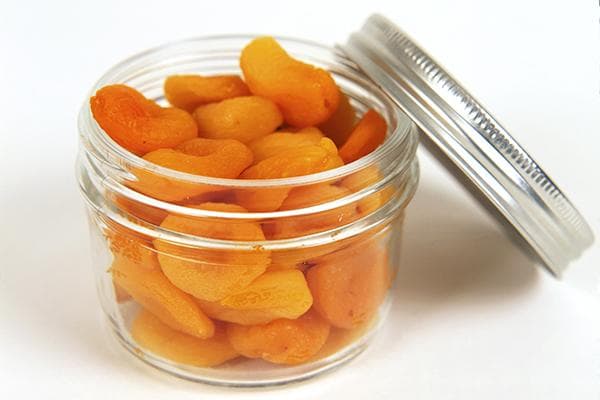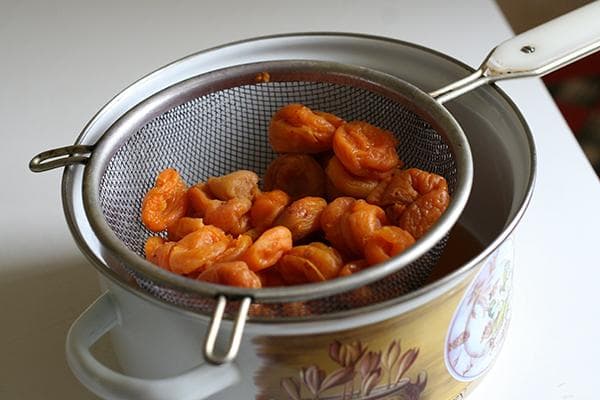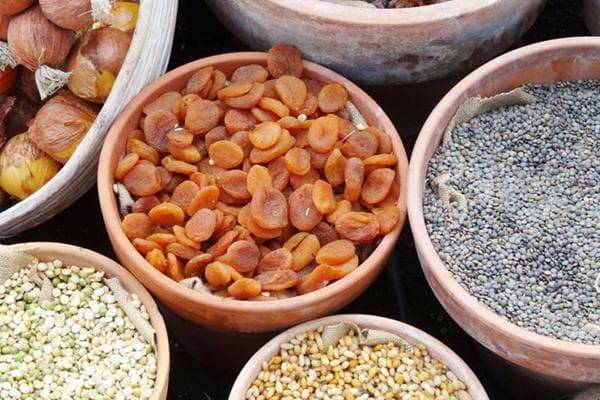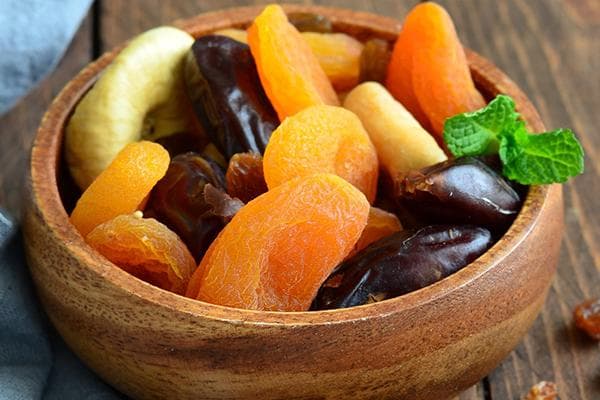How to store dried apricots at home: 3 ways
Dried or sun-dried apricots are a tasty, healthy and dietary delicacy. You definitely need to know how best to store dried apricots in order to get the maximum benefit from the product.
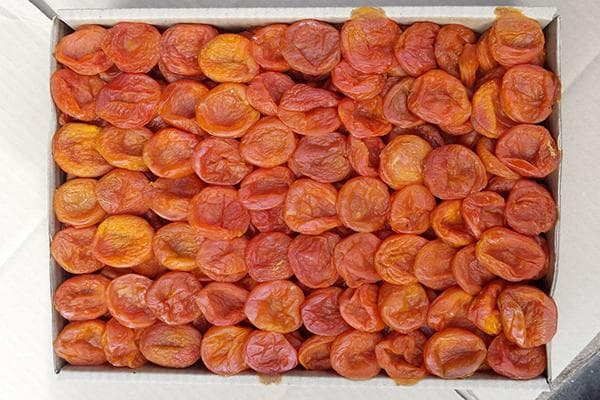
Choosing a storage location
Depending on the required shelf life of the product, it can be kept:
- in a kitchen cabinet or pantry;
- in a refrigerator;
- in the freezer.
At room temperature in a cabinet, the shelf life of dried fruits is no more than a month. If it is exceeded, the berries will become covered with a white coating and will no longer be suitable for consumption. This method is not suitable for dried berries - only for dried ones.
At the same room temperature, but in a dark, dry place and in a wooden container, dried apricots can wait for about six months to be consumed.
You can keep dried fruit in the refrigerator for up to a year. All this time it retains its value and taste.
Dried apricots can last a year and a half in the freezer. Naturally, it will need to be defrosted before use.
In what container should you store dried apricots?
First, let's figure out which containers are absolutely not suitable.
They do not like dried apricot fruits:
- metal containers;
- plastic bags;
- bags made of fabric or paper.
When in contact with metal, dried apricots oxidize, which negatively affects its taste. Plastic bags (unless they are freezer plastic) are generally not suitable for storing any kind of food.Linen and paper containers do not prevent moisture from penetrating dried fruits. Insects and rodents can easily get to dried apricots stored in film, fabric or paper.
Apricot really does not like the proximity of other dried fruits. If you store the berries in a mixture, then the dried apricots lose their characteristic taste and smell.
Glass or ceramic dishes with a tight-fitting lid are ideal for storing dried apricots at home. It’s even better if such a container is sealed hermetically. Plastic containers will also work - they should also be well sealed.
Optimal storage conditions
Even the most ideal conditions do not guarantee the absence of unpleasant surprises in the form of pests or mold. Therefore, dried apricots must be sorted out from time to time.
If mold appears, then the berries cannot be saved. They have become inedible, and their place, unfortunately, is in the trash.
If there are insects in a container with dried fruits, the fruits can still be saved:
- Sort through the fruits and get rid of any damaged ones.
- Wash and dry each whole berry.
- Divide into portions and place in the freezer.
Dried apricots feel best at a temperature of 9–16 degrees, with low humidity and away from water, heat and direct sunlight.
To wash or not to wash – that is the question
Dried apricots are afraid of moisture, so housewives are faced with this question.
Before storing in a kitchen cabinet, refrigerator or freezer, dry berries do not need to be washed.
If dried apricots are stored at home at room temperature, then they are washed or soaked to soften them immediately before use. The same thing happens when stored in the refrigerator.
If the product is waiting in the freezer, it is also defrosted in warm water and washed before use.
Some useful tips
- In the refrigerator, it is correct to keep dried apricots on a separate shelf in the door. The temperature there is a little higher, and there is no need to empty one of the main shelves to avoid proximity to other products.
- In the freezer, berries should also be kept away from other frozen foods. Especially from fish and meat.
- Before storing apricots, you need to sort them out and remove any wrinkled or damaged fruits.
- The more unpresentable the dried apricots, the more useful they are. When dried naturally, the fruits wrinkle and darken. When choosing such berries, you can be sure that they have not been glossed with food chemicals.
What is the best way to protect fruits from pests?
It is better to line the container in which dried apricots are stored with parchment paper and place several leaves of mint, washed and dried with a paper towel, along with the berries. The smell of mint will repel insects, and the parchment will absorb moisture if it is released from fruits or greens.
The jars in which the dried apricots will be stored can be washed with a vinegar solution. For 1 part acid, take 2 parts boiled water. After processing, the container must be thoroughly dried without rinsing.
You can put the zest of an orange, lemon or grapefruit on the shelf where the dried fruits are. Citrus peels need to be renewed every 30 days. Pests cannot stand the zest.
So, there are 3 options for storing dried apricots at home: in the kitchen cabinet, in the refrigerator and in the freezer. The choice is made based on when you plan to eat dried apricots.

